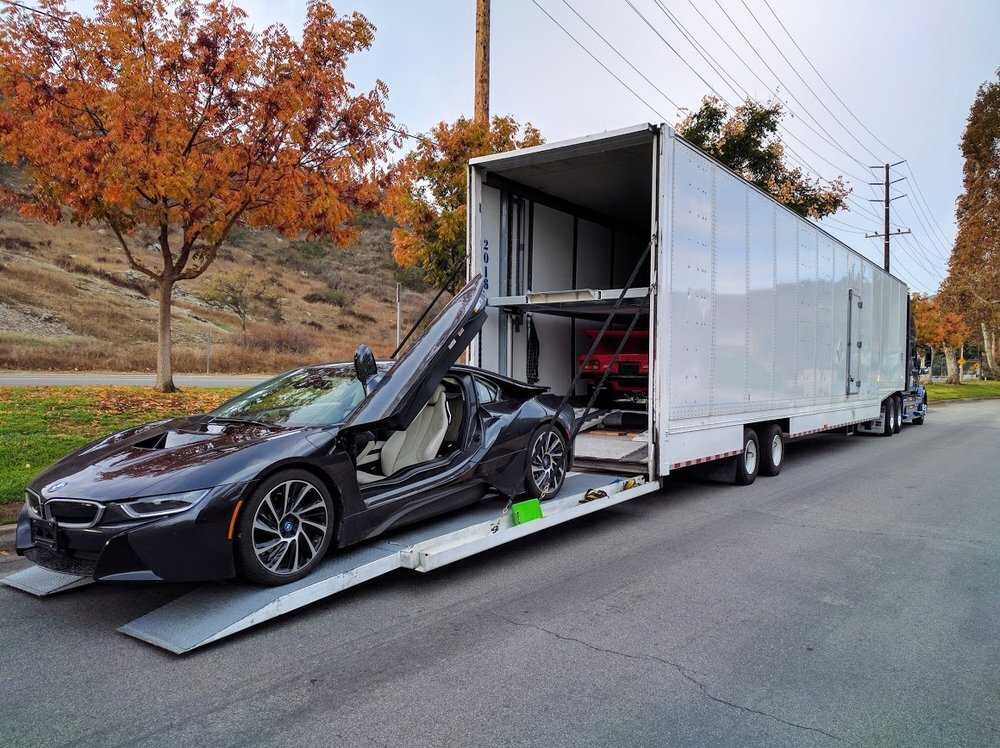What Do Car Inspections Look For
Car inspections play a vital role in assessing the condition and overall health of a vehicle. Whether you are purchasing a used car, preparing for a long journey, or ensuring the safety of your own vehicle, understanding what car inspections look for is essential. These inspections involve a comprehensive examination of various components, systems, and aspects of the vehicle to identify potential issues or areas of concern.
During a car inspection, trained professionals or mechanics carefully examine both the exterior and interior of the vehicle. They assess the bodywork, paint condition, tires, lights, and windows for any signs of damage or wear. The inspection also encompasses the engine, transmission, brakes, suspension, steering wheel, and exhaust system to ensure they are functioning correctly.
Furthermore, car inspections focus on safety features, such as seat belts, airbags, and the effectiveness of the braking system. They also inspect the electrical systems, including the battery, alternator, and lights, to ensure proper operation.
Fluid levels, such as engine oil, coolant, brake fluid, and transmission fluid, are checked to ensure they are at appropriate levels and in good condition. Additionally, inspections may involve examining the vehicle’s documentation, including registration and service history, to verify its authenticity and maintenance records.
By conducting thorough car inspections, potential issues or hidden problems can be identified early on, allowing for necessary repairs or negotiations before purchasing a vehicle. Regular inspections also help maintain the reliability, safety, and performance of your own vehicle.
Understanding what car inspections entail empowers car owners to make informed decisions, ensuring the longevity and safety of their motor vehicles. Whether for pre-purchase evaluations or routine maintenance, these inspections provide valuable insights into a vehicle’s overall condition and functionality.
What Is a Car Inspection?

A car inspection is a comprehensive evaluation of a vehicle’s condition, performance, and safety conducted by trained professionals or certified mechanics. It involves a systematic examination of various components and systems to assess their functionality and identify potential issues.
During a car inspection, both the exterior and interior of the vehicle are thoroughly inspected. This includes checking the bodywork, tires, lights, windows, and paint condition for any signs of damage or wear. The engine, transmission, brakes, suspension, steering components, and exhaust system are examined to ensure they are in proper working order.
Safety features like seat belts, airbags, and the effectiveness of the braking system are scrutinized to ensure compliance with safety standards. Fluid levels, including engine oil, coolant, brake fluid, and transmission fluid, are checked and topped up as necessary.
A car inspection provides valuable insights into a vehicle’s overall health and helps identify potential maintenance or repair needs. It is commonly performed when buying a used car, as part of routine maintenance, or prior to embarking on a long journey to ensure optimal performance and safety on the road.
Benefits of a Car Inspection
A car inspection offers several important benefits for both buyers and owners of vehicles. Here are some key advantages:
- Peace of Mind: A thorough car inspection provides peace of mind by ensuring that the vehicle is in good condition and free from hidden issues. It allows buyers to make informed decisions and reduces the risk of purchasing a car with undisclosed problems.
- Safety Assurance: A car inspection focuses on evaluating safety features, such as brakes, lights, seat belts, and airbags. Identifying any deficiencies in these critical components ensures the safety of both drivers and passengers.
- Cost Savings: By identifying potential issues early on, a car inspection can save owners from expensive repairs down the line. It allows for necessary maintenance and addressing minor problems before they escalate into major and costly repairs.
- Negotiation Power: If a car inspection reveals any issues or areas of concern, it provides leverage for negotiations. Buyers can use the inspection report to negotiate a fair price or request repairs before finalizing the purchase.
- Optimal Performance: Regular car inspections help maintain the vehicle’s performance and efficiency. Identifying and addressing maintenance needs, such as fluid changes or worn-out components, ensures the vehicle operates at its best.
- Compliance with Regulations: A car inspection ensures compliance with local regulations and vehicle emissions standards, helping owners avoid legal issues and penalties.
In conclusion, a car inspection provides peace of mind, safety assurance, cost savings, negotiation power, optimal performance, and compliance with regulations. Whether you’re buying or already own a vehicle, a car inspection is a valuable investment to protect your investment and ensure a smooth and safe driving experience.
Exterior Car Inspection

An exterior car inspection is a crucial part of evaluating the overall condition and appearance of a vehicle. It involves a detailed examination of the exterior components to identify any signs of damage, wear, or potential issues.
During an exterior car inspection, trained professionals or owners pay close attention to the bodywork, including the paint, dents, scratches, and rust. They inspect the windows for cracks or chips, ensuring they are properly sealed and operational. The condition of the tires, including tread depth and tire pressure, is also assessed to ensure safety on the road.
Additionally, an exterior inspection involves examining the lights, including headlights, taillights, brake lights, and turn signals, to ensure they are functioning correctly. The condition of the mirrors, windshield wipers, and other external accessories are also checked.
An exterior car inspection provides valuable insights into the vehicle’s overall appearance, annual safety inspection, and potential maintenance needs. By identifying any issues early on, owners can take the necessary steps to address them and maintain the vehicle’s aesthetic appeal and functionality. Whether buying a used car or maintaining your own vehicle, an exterior inspection is a crucial step in ensuring the overall condition and safety of the vehicle.
Interior Car Inspection

An interior car inspection is an essential part of evaluating the overall condition and functionality of a vehicle’s interior components. It involves a thorough examination of the various interior features to identify any signs of wear, damage, or potential issues.
During an interior car inspection, attention is given to the condition of the seats, including any tears, stains, or signs of wear. The functionality of the seat adjustments, such as reclining and sliding mechanisms, is also assessed. The condition of the dashboard, instrument cluster, and controls is inspected to ensure they are in proper working order.
Furthermore, an interior inspection involves checking the functionality of the air conditioning, heating, and ventilation systems. The condition of the audio and entertainment systems, including speakers and touchscreen displays, is also evaluated.
Other aspects of the interior inspection may include assessing the condition of the carpets, floor mats, and upholstery. The functionality of features like power windows, door locks, and interior lighting is examined as well.
An interior car inspection provides valuable insights into the vehicle’s comfort, functionality, and potential maintenance needs. By identifying any issues or areas of concern, owners can take the necessary steps to address them and ensure a pleasant and functional interior driving experience. Whether buying a used car or maintaining your own vehicle, an interior inspection is vital for assessing the overall condition and usability of the vehicle’s interior.
Mechanical Car Inspection

A mechanical car inspection is a critical process that involves a thorough evaluation of a vehicle’s mechanical components. This inspection focuses on assessing the overall health, performance, and functionality of key mechanical systems.
During a mechanical car inspection, trained professionals or mechanics carefully examine the engine, transmission, brakes, suspension, steering, and exhaust system. They look for signs of wear, brake fluid leaks, or any potential issues that may affect the vehicle’s performance and safety. Components such as belts, hoses, filters, and fluids are also inspected for proper functioning and levels.
Furthermore, a mechanical inspection includes checking the battery, alternator, and starter to ensure they are in good working condition. The inspection may involve testing the heating and cooling systems, as well as the electrical components and wiring.
By conducting a mechanical car inspection, potential problems can be identified early on, allowing for necessary repairs or maintenance. This inspection provides valuable insights into the vehicle’s mechanical integrity, safety, and performance. Whether purchasing a used car or ensuring the reliability of your own vehicle, a thorough mechanical inspection is crucial for peace of mind and optimal driving experience.
Framework Inspection

A framework inspection is an essential part of evaluating the structural integrity and safety of a vehicle. This inspection focuses on examining the vehicle’s framework or chassis for any signs of damage, wear, or potential issues.
During a framework inspection, professionals or mechanics carefully assess the vehicle’s frame for any signs of structural damage, including bends, cracks, or rust. They examine key areas such as the front and rear sections, as well as the undercarriage, where the frame is most susceptible to damage.
The inspection also includes checking the alignment and integrity of the suspension components, such as control arms, bushings, and struts. This ensures that the vehicle’s suspension system is functioning properly and contributes to a smooth and safe ride.
A thorough framework inspection provides valuable insights into the overall structural condition of the vehicle. By identifying any issues early on, owners can address potential safety risks and take necessary steps for repairs or maintenance. Whether purchasing a used car or ensuring the safety of your own vehicle, a framework inspection is crucial for assessing the structural integrity and safety of the vehicle.
How Often Do I Need To Inspect My Car?

Regular car inspections are essential for maintaining the safety, performance, and longevity of your vehicle. The frequency of inspections can vary depending on factors such as the age of the car, driving conditions, and manufacturer recommendations. However, a general guideline is to have your car inspected at least once a year or every 12,000 miles, whichever comes first.
In addition to these regular vehicle inspections, it’s important to conduct specific maintenance checks at regular intervals. This includes oil changes, tire rotations, and fluid level inspections, which are typically recommended every 3,000 to 5,000 miles or every few months.
Furthermore, it’s crucial to conduct inspections before long trips or during seasonal changes when different weather conditions can impact your vehicle’s performance and safety.
It’s important to note that if you notice any unusual sounds, vibrations, or warning lights, it’s advisable to have your car inspected immediately, regardless of the scheduled maintenance interval.
By adhering to regular inspection schedules and addressing any potential issues promptly, you can ensure your car remains in optimal condition, minimize unexpected breakdowns, and prolong its lifespan.
What Happens During a Safety Inspection?

A safety inspection is a comprehensive evaluation of a vehicle’s safety-related components and systems. During this inspection, trained professionals or mechanics carefully examine various aspects of the vehicle to ensure it meets safety standards and regulations.
During a safety inspection, key areas such as the braking system, including brake pads, rotors, and brake fluid, are thoroughly inspected for proper functioning and wear. The steering and suspension components are checked for any signs of damage or wear that could compromise control and stability.
In addition, the inspection includes assessing the condition of tires, including tread depth and tire pressure, to ensure they provide adequate traction and grip on the road. The lights, including headlights, taillights, brake lights, license plate lights, and turn signals, are examined to ensure they are functioning correctly.
Moreover, safety features such as seat belts, airbags, and windshield wipers are inspected for proper operation. The condition of the windshield, mirrors, and windows is also assessed for any cracks or visibility issues.
By conducting a safety inspection, potential safety hazards can be identified, allowing for necessary repairs or maintenance to ensure the vehicle’s safety on the road. It provides valuable peace of mind and helps maintain the safety of both the driver and passengers.
The In-and-Outs of a Complete Vehicle Inspection

A complete vehicle inspection is a thorough assessment of a vehicle’s overall condition, performance, and safety. It involves a comprehensive examination of various components, vehicle systems, and aspects to identify potential issues or areas of concern.
During a complete vehicle inspection, trained professionals or mechanics meticulously examine both the interior and exterior of the vehicle. They assess the bodywork, paint condition, tires, hazard lights, windows, and mirrors for any signs of damage or wear. The inspection also encompasses the engine, transmission, brakes, suspension, steering, and exhaust system to ensure they are functioning correctly.
Additionally, a complete vehicle inspection includes evaluating safety features such as seat belts, airbags, and the effectiveness of the braking system. Fluid levels, including engine oil, coolant, brake fluid, power steering fluid, and transmission fluid, are checked to ensure they are at appropriate levels and in good condition. The electrical systems, battery, and overall vehicle documentation may also be assessed.
By conducting a comprehensive vehicle inspection, potential issues can be identified early on, allowing for necessary repairs or maintenance. It provides valuable insights into the vehicle’s overall condition, performance, and safety. Whether for pre-purchase evaluations or routine maintenance, a complete vehicle inspection is crucial for ensuring the reliability, safety, and longevity of the vehicle.
Where Do I Get an Inspection?

You can get a vehicle inspection at various locations, including authorized dealerships, certified mechanics or technicians, and specialized inspection stations. Authorized dealerships often provide inspections for the specific brands they represent. Independent mechanics or repair shops also offer inspection services. Additionally, some regions have dedicated inspection stations where professionals conduct thorough inspections according to local regulations. It’s important to choose a reputable and qualified establishment for your inspection to ensure accurate and reliable results. You can inquire about inspection services at local automotive service centers or search online for trusted providers in your area.
FAQs

What Happens if I Fail My Vehicle Inspection?
If your vehicle fails the inspection, it means that it did not meet the required safety and/or emission standards. The specific course of action may depend on local regulations and the reason for the failure. Here are some common scenarios:
- Repair and Reinspection: In most cases, you will need to address the issues that caused the failure and have them repaired. Once the repairs are completed, you can schedule a reinspection to ensure the vehicle now meets the necessary standards.
- Compliance with Regulations: Failing an inspection may indicate non-compliance with local safety or emission regulations. You may need to take the necessary steps to bring your vehicle up to code before it can pass the inspection.
- Temporary Permits: In some situations, you might be issued a temporary permit to allow for a limited period of use while you address the issues. This temporary permit typically has an expiration date and requires prompt repairs to ensure compliance.
- Penalties or Fines: Failing to address the issues or comply with regulations may result in penalties or fines imposed by the local authorities.
It’s important to consult with the inspection station or local authorities for specific instructions and requirements in your area if your vehicle fails the inspection. They can provide guidance on the necessary steps to rectify the issues and pass inspection successfully.
How Much Does the Safety Inspection Cost?
The cost of safety inspections can vary depending on several factors, including the location, the type of vehicle, and the complexity of the inspection. Here are some frequently asked questions related to the cost:
- How much does a safety inspection typically cost? The cost of a safety inspection can range from around $50 to $150 or more, depending on the location and specific requirements.
- Are there additional fees involved? Some inspection stations may charge additional fees for emission testing or for any repairs needed to pass the inspection.
- Do different vehicles have different inspection costs? Yes, the cost can vary based on the type of vehicle. For example, commercial vehicles or larger vehicles may require more extensive inspections, which can affect the overall cost.
- Are there any discounts available? Some inspection stations may offer discounts or promotional offers, so it’s worth checking with different providers to compare prices and available discounts.
It’s important to note that the cost of a safety inspection is a worthwhile investment in ensuring the safety and compliance of your vehicle. Prices may vary, so it’s recommended to research and contact local inspection stations to get accurate cost estimates for your specific vehicle and location.
How Long Does an Inspection Take?
The duration of a vehicle inspection can vary depending on several factors, including the type of inspection, the complexity of the vehicle, and the inspection station’s workload. Here are some frequently asked questions related to the duration of inspections:
- How long does a safety inspection usually take? On average, a safety inspection can take anywhere from 30 minutes to 2 hours, depending on the thoroughness of the inspection and the condition of the vehicle.
- Are there any factors that can affect the inspection time? Factors such as the size and type of the vehicle, any pre-existing issues or repairs needed, and the efficiency of the inspection station can impact the duration of the inspection.
- Can I schedule an appointment to reduce wait times? Many inspection stations allow you to schedule appointments in advance, which can help minimize waiting times and ensure a more efficient inspection process.
- Do I need to stay with my vehicle during the inspection? In most cases, you are not required to stay with your vehicle during the inspection. However, it’s best to check with the specific inspection station’s policies to confirm their requirements.
It’s important to keep in mind that these timeframes are approximate and can vary depending on the circumstances. It’s recommended to contact the inspection station directly to get a better idea of the expected duration for your specific inspection.

